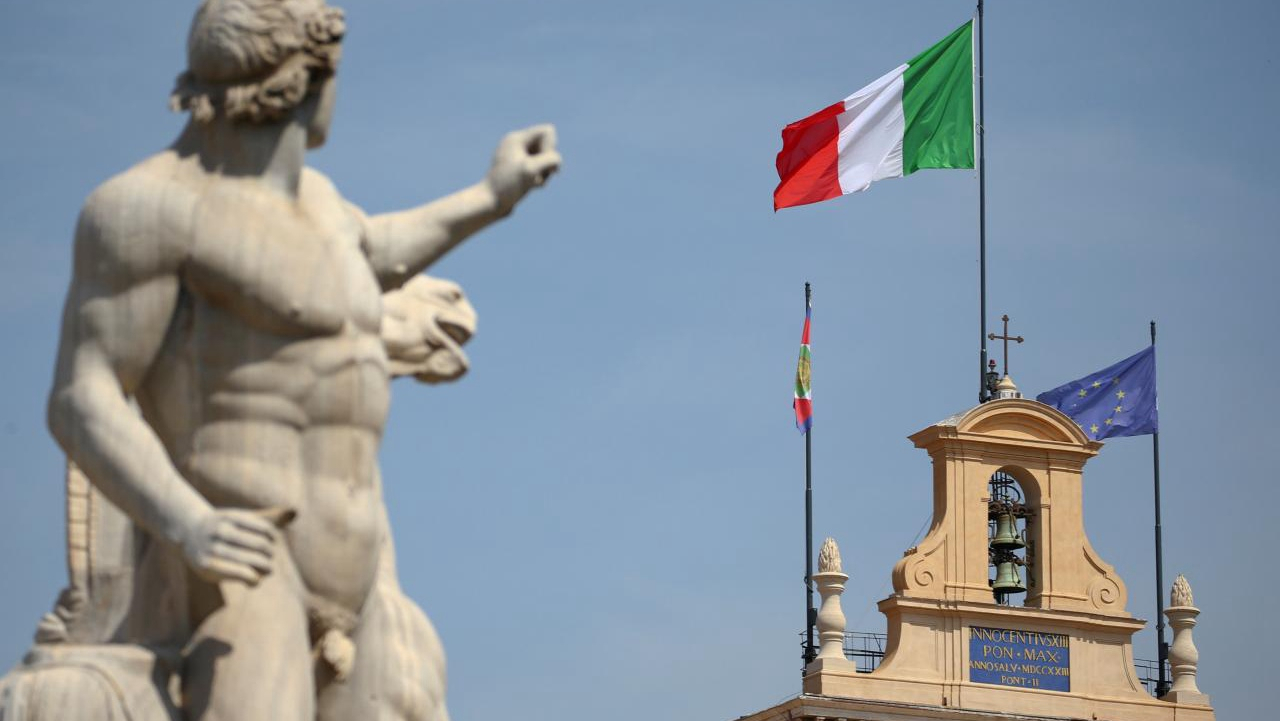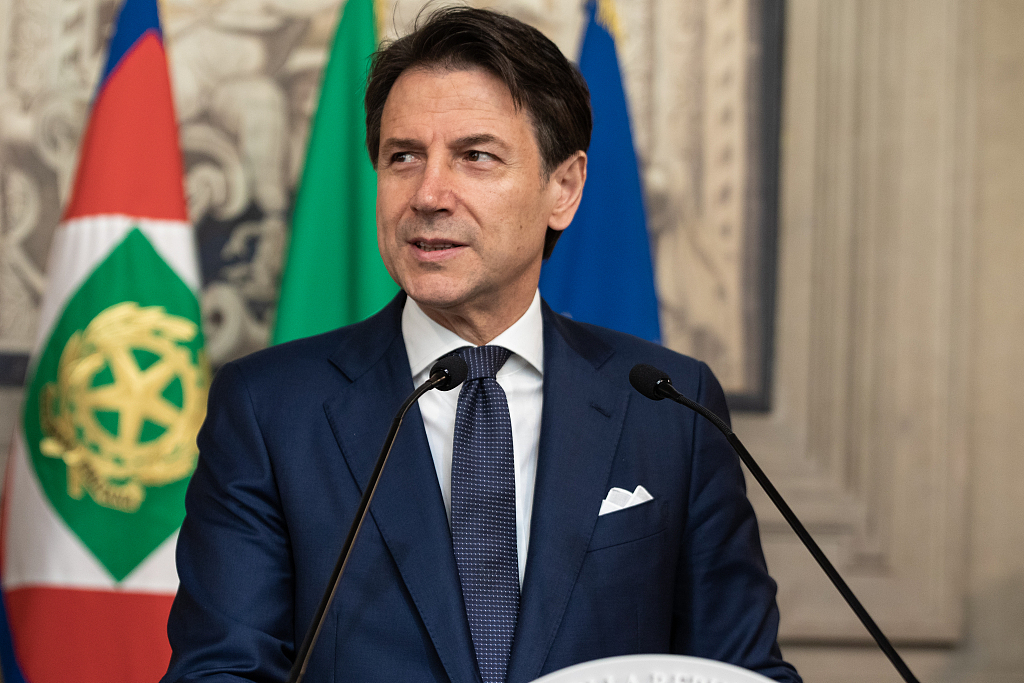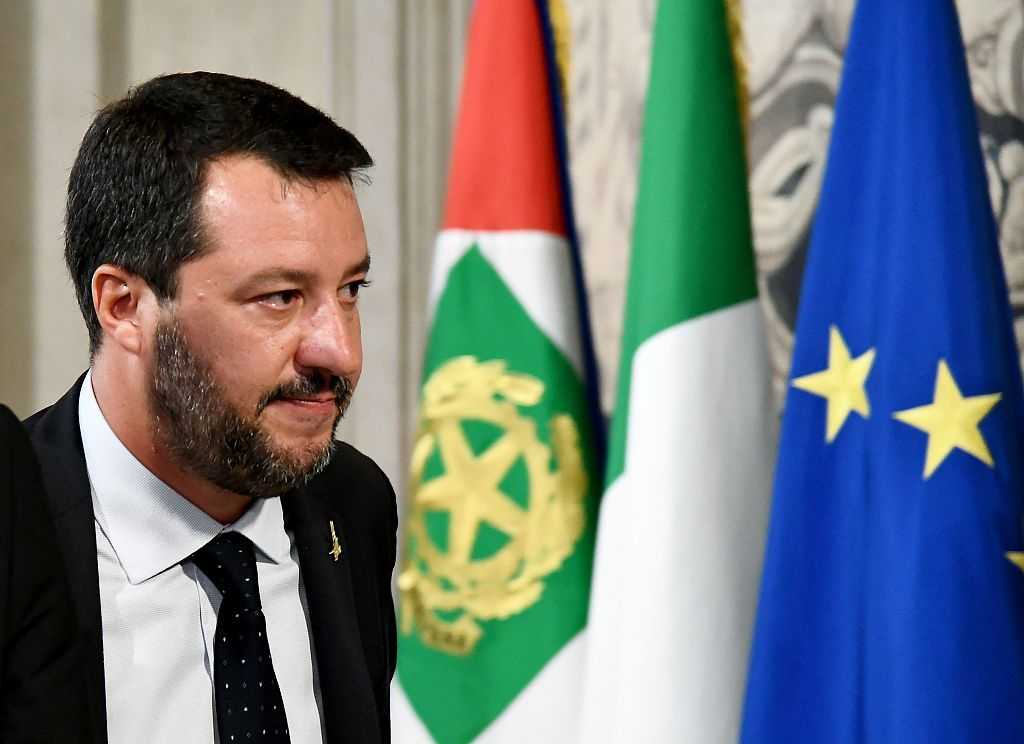

Editor's note: Matteo Giovannini is a finance professional at ICBC in Beijing and a member of the China Task Force at the Italian Ministry of Economic Development. The article reflects the author's views, and not necessarily those of CGTN.
One week after a vote of no-confidence against the Prime Minister Giuseppe Conte called by the leader of the Lega party Matteo Salvini, Italy is now on the verge of appointing the 67th government since the end of World War II. No other country in history has ever experienced such a large number of governments in such a short period of time.
Since the political election in 2018, the political landscape in Italy has been highly fragmented with no clear party able to lead the country without allying with another political entity.
This was the case of the coalition between two Italian parties, Lega Nord and Five Star Movement, that imploded last week. This is also the case of the new coalition that it is forming in these days between the Democratic Party and the Five Star Movement.
It has been questioned what kind of future another coalition of two parties that share different values can offer to the country after the unsuccessful previous experiment. In my view, there is a clear distinction in the way these two coalitions have been formed.
The Lega and Five Star Movement coalition was formed as a result of a political election where no party could lead the country alone. After a long negotiation, it was decided to create a coalition with the two parties that received the highest consensus.

Giuseppe Conte, Italian Prime Minster, speaks to the media after the approval of the new government by the Italian President Sergio Mattarella in Rome, Italy, August 29, 2019. /VCG Photo
On the contrary, the Democratic Party and Five Star Movement is an alliance born as a way to prevent the Lega party's rise to power that, in a hypothetical new election, could be able to reach enough number of votes to come into power with a majority guaranteed by the support of two small allied parties.
The new coalition is currently negotiating the appointment of key people for the new cabinet. Premier Giuseppe Conte will need to receive the approval of the Parliament in order to receive the new mandate even though he has already received the approval of the President of the Italian Republic to form a new coalition.
The news of a re-appointment of Conte to lead a new government has been welcomed by other countries' leaders in part because it represents stability and continuity, and on the other hand because Conte has established close relationships with other heads of states and has been judged as a trustworthy leader.
Financial markets have also showed appreciation for this political scenario with indicators such as the interest rate spread between Italian and German bonds narrowing down due to a lower risk of an Italexit from the euro and the European Union, a scenario threatened by Salvini.
Stability, continuity and trust are certainly welcomed by China because the exit from the government of the Lega party removes a possible danger in the relationship between the two countries.
Salvini has always been against any agreement with China preferring the alliance with the United States and deserting the signing ceremony of the Memorandum of Understanding during the state visit of Chinese President Xi Jinping in March of this year.
The Democratic Party and Five Star Movement have always considered China an important strategic partner and will guarantee the continuity in the good relationship between the both nations.

Matteo Salvini, leader of the Italian party Lega Nord, leaves after a meeting with Italian President on the second day of consultations of political parties at the Quirinal palace in Rome, Italy, August 22, 2019. /VCG Photo
The Democratic Party's Prime Minister Paolo Gentiloni was one of the few representatives in the G7 to participate in the first Belt and Road Forum (BRF) for International Cooperation held in Beijing two years ago, while Conte, even during the election campaign, didn't want to miss the second BRF early this year and was received with the highest honors by the Chinese.
The new government coalition will have to engage in constructive discussions with the European Union, to approve parliamentary reforms for the reduction of the number of seats in Parliament and to pass a new voting law to prevent dangerous parties such as Lega to get what they have always aimed for: full power.
Lastly, the new government will be in charge of appointing the top management positions for over 40 state-owned companies accounting for about 160 billion euros worth of capitalization and, above all, will be responsible for preparing the shortlist of candidates for the position of President of the Italian Republic to be appointed in 2022.
The position of President of the Italian Republic is probably one of the triggers of the current political crisis because it represents a key position that can shape the future of the Italian political system.
The current President of the European Central Bank Mario Draghi last week declared that he is not interested in the position and it has been speculated that the former Prime Minister Romano Prodi, a close friend of China and a member of the Advisory Board of the China Development Bank, is getting ready for that position.
It is an extremely unpredictable period of time in Italian political history that catches the attention of Italian citizens and foreign observers. Political instability is never what a country aims for, but in Italy's case it's definitely good news.
(If you want to contribute and have specific expertise, please contact us at opinions@cgtn.com.)

Copyright © 2018 CGTN. Beijing ICP prepared NO.16065310-3
Copyright © 2018 CGTN. Beijing ICP prepared NO.16065310-3